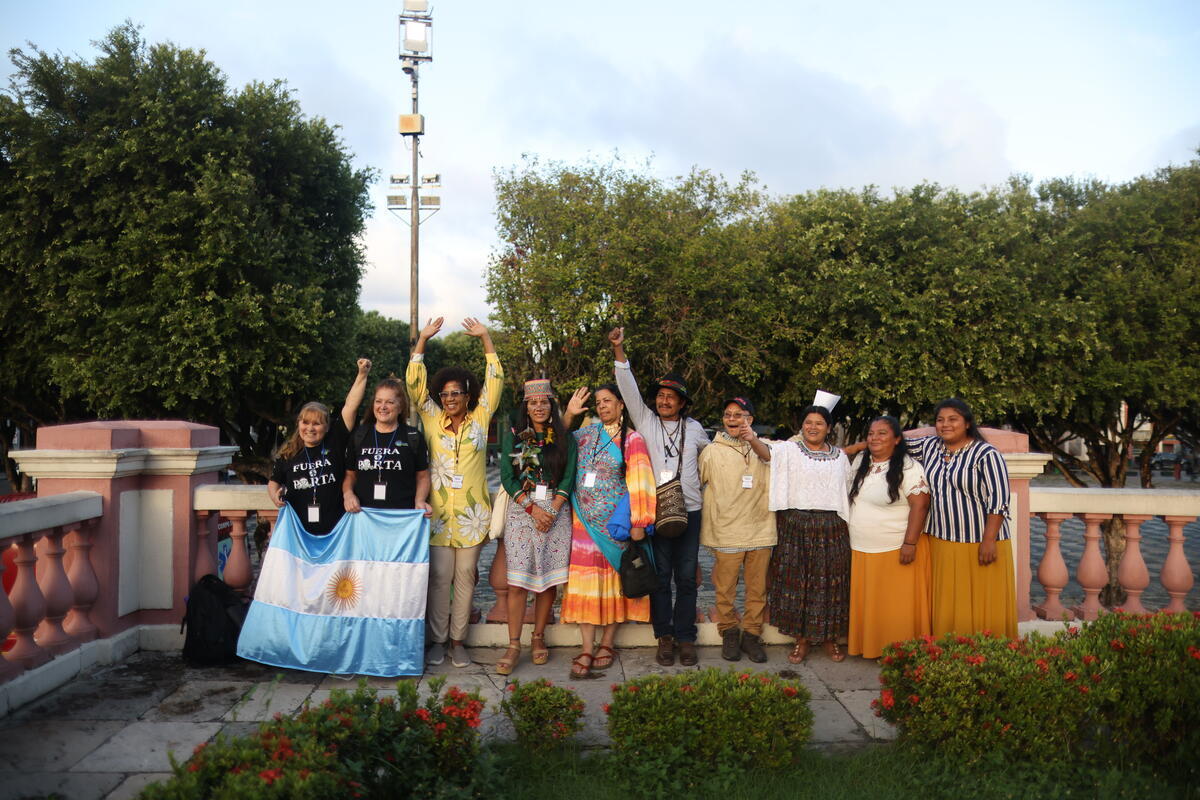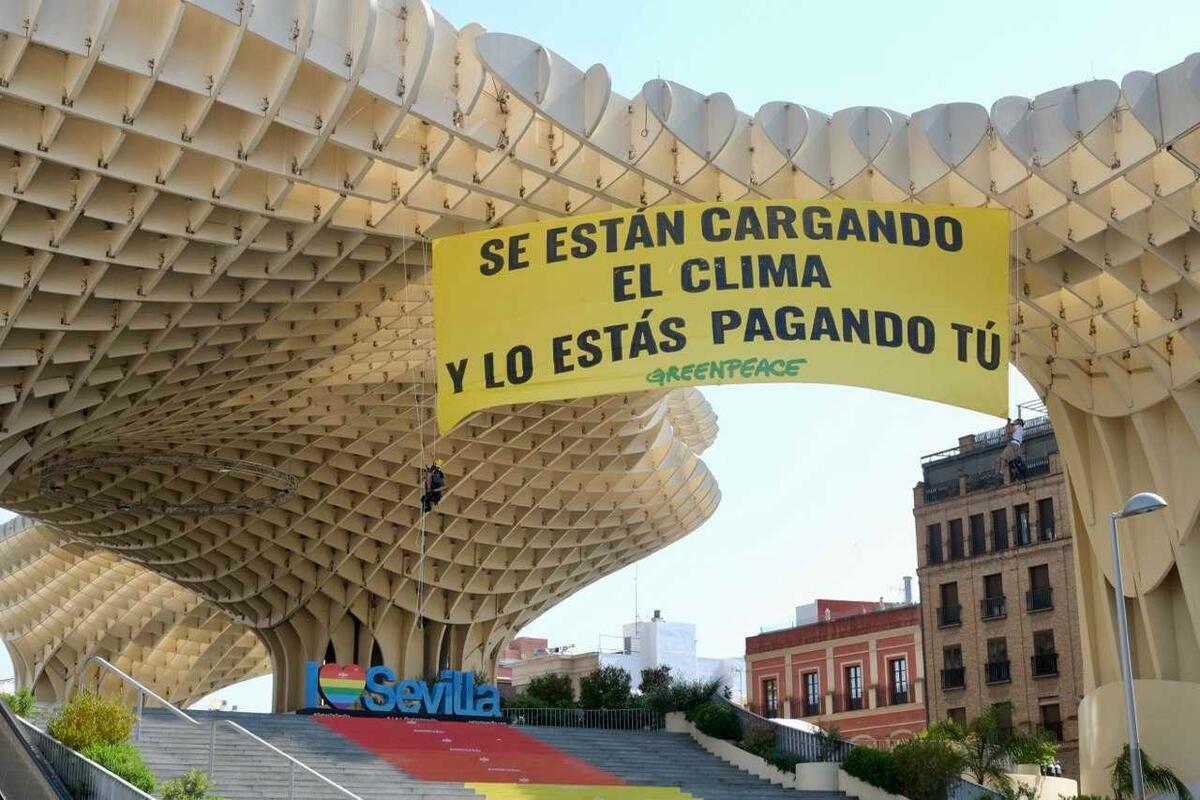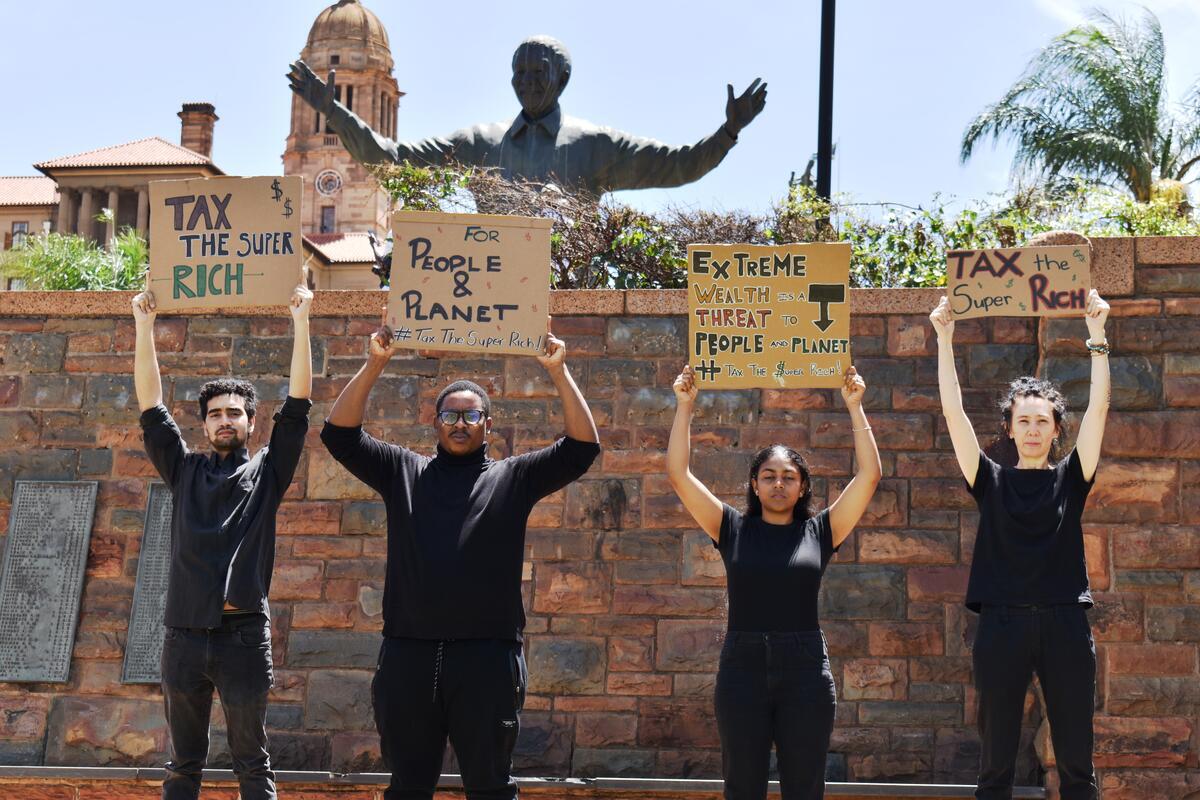Everything is connected. We hear it in music lyrics and jingles, an idea embedded in many cultures, a seemingly throwaway line on par with the often parodied quest for “World Peace” and the fantasy for us all to “hold hands and be friends”. We accept it as a warm and fuzzy notion – but what if everything really is connected and this tenet is what, in the next half-a-decade, could be at the heart of our capacity to push back against and triumph over the erosion of our planet and all its life forms?
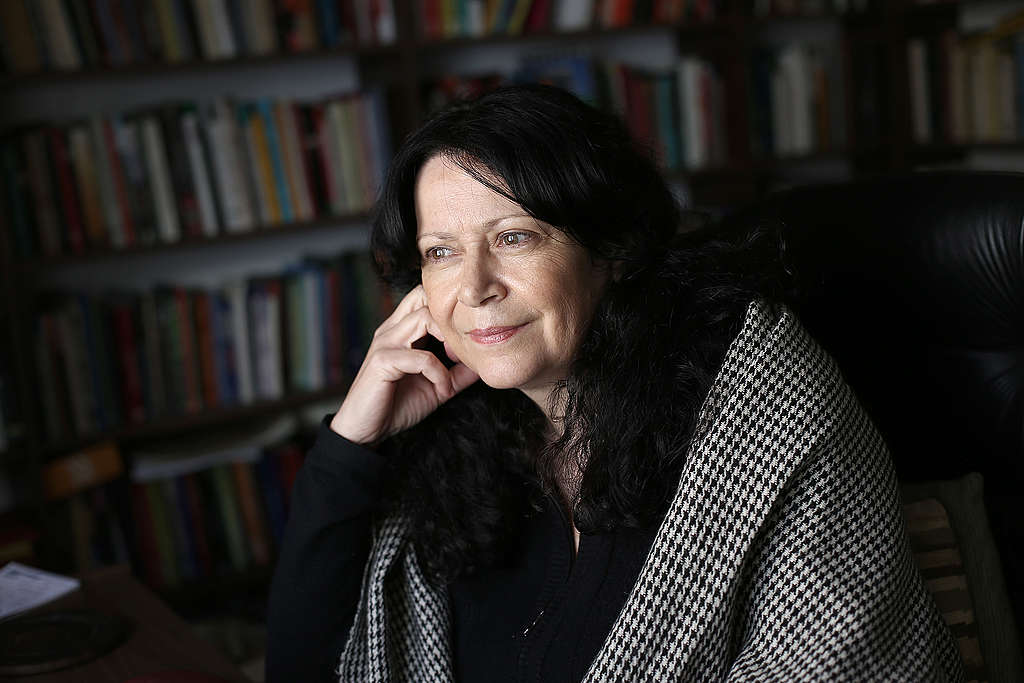
This connectedness would mean that the climate and biodiversity crisis isn’t sitting in a folder titled “Environment”. It would mean Existence isn’t neatly filed in alphabetical order but is rather a fabric of actions and consequences tightly woven and interdependent. This interdependence is what Maristella Svampa, the Argentine sociologist and writer at Pacto Eco Social del Sur, refers to as an “… articulation between social justice and environmental justice…”.
What if we put care at the core?
It might not be immediately evident to all that to fight climate change we need to pay attention to and prioritize the care economy. The global community of care workers (populated largely by women) – carers, health workers, domestic workers, and more – is heavily relied upon by many, especially during times of crisis. Yet despite the crucial role it plays, care work often goes unnoticed and undervalued. It is imperative then, to recognise the hypocrisy in this – a key part of what sustains humanity and life, in general, is undervalued while other economies focused on profit and bottom-line are raised up.
What if we asked ourselves – what is truly valuable? When crises hit and the fabric of society starts to unravel it was and is this care workforce, also dubbed, during pandemic times, essential workforce, that builds back resilience in units of care, attention and connection. What could be possible if we put care at the core?

Mara Dolan, Program Manager at the Women’s Environment and Development Organization (WEDO), states that “To build any green and just future, an economic transformation must advance racial, gender, economic and climate justice by focusing on care.”

Lidy Nacpil, Coordinator of the Asian Peoples Movement on Debt and Development, says “Central to the fight against the climate and biodiversity crises is the transformation of the dominant economic system that has created and driven the crises.”
Feminist solutions
Many feminist leaders from the global South have also been challenging capitalism and offering concrete solutions such as claiming our commons* and putting more value on the economy of care. More than just highlighting issues, their solutions emanate from the roles they play as women in the communities, such as informal household workers, caring for children and the elderly, and frontline workers.
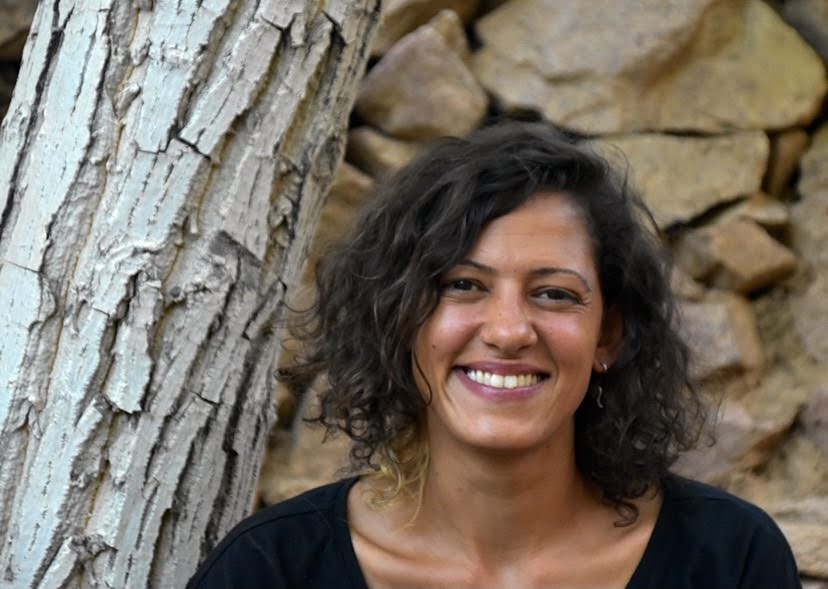
Dina Kafafy of Sinaweya in Egypt calls for relocalisation and caring for local cultures and history: “We need to change our perception of ourselves and reposition humanity in the web of life. And when we look into traditional communities in every corner of the world, we see an understanding of local resources, climate patterns, flora and fauna; they were aware of and revered their environment which sustained them.
“Take from the Earth but always give back, replenish. And in this synchronicity and awareness comes abundance of resources and compassion. A gift economy and sense of community emerges. If weaved into our society’s foundations this principle would breed more love, fairness and connectivity to the Earth and each other,” she says.
Time to thrive
All these women, and so many more, in different forms and spaces, are advocating for a radical shift in how societies understand value, and how their roles in all kinds of crises should be acknowledged – be it in pandemics, ecological catastrophes and wars; how those who hold seats of power act, how we measure wellbeing; they are fighting for a just future equipped with the necessary forms of resilience for all life forms to thrive.
“We are fighting for a new order in which economic systems give primacy to the provisioning for a dignified and empowering life for all people in ways that are compatible with the capacity and health of the planet, values social reproduction as equally important as production, and recognizes the often invisible role and contributions of women. Beyond simply recognition, what has traditionally been considered women’s work should be socialized and redistributed.” said Nacpil.
Svampa is in agreement when she states that “This will make it possible to tackle labor precarity and achieve a fairer distribution of caregiving tasks in terms of social class and gender, as this work usually falls unequally upon families and, within them, upon women.”
Shifting power
Similarly, WEDO advocates for a “transition from an extractive economy to a repairative one rooted in the rights, health and well-being of all—and this means valuing, supporting and investing in care work in all its forms.” To this end, Dolan cites that they have “outlined key economic shifts needed in global financial architecture in order to redistribute resources towards investment in care. This means shifts as outlined in the Action Nexus’ Blueprint for a Global Feminist Economic Justice Agenda.”
This includes ending austerity and committing to robust public services and social protections, developing a more just global tax system that no longer protects corporate interests and profits above human rights and well-being, and building a new multilateral and legal framework for a debt cancellation and workout mechanism. She adds that “Green jobs are not just jobs in hard hats retrofitting buildings and constructing solar and wind energy – they are also jobs of caring for each other, teaching, home health care, child care, elder care and more.”
Respect nature, respect each other
There are many traditional and Indigenous solutions in the global South that would challenge capitalism and extractivist models such as the commons, degrowth, redefining well-being, and enhancing fair incomes and other alternative socio–economic models. They are people-focused, community-driven, putting care at the center and working within our ecological limits. The question now is how do we turn these solutions into a new and better normal.
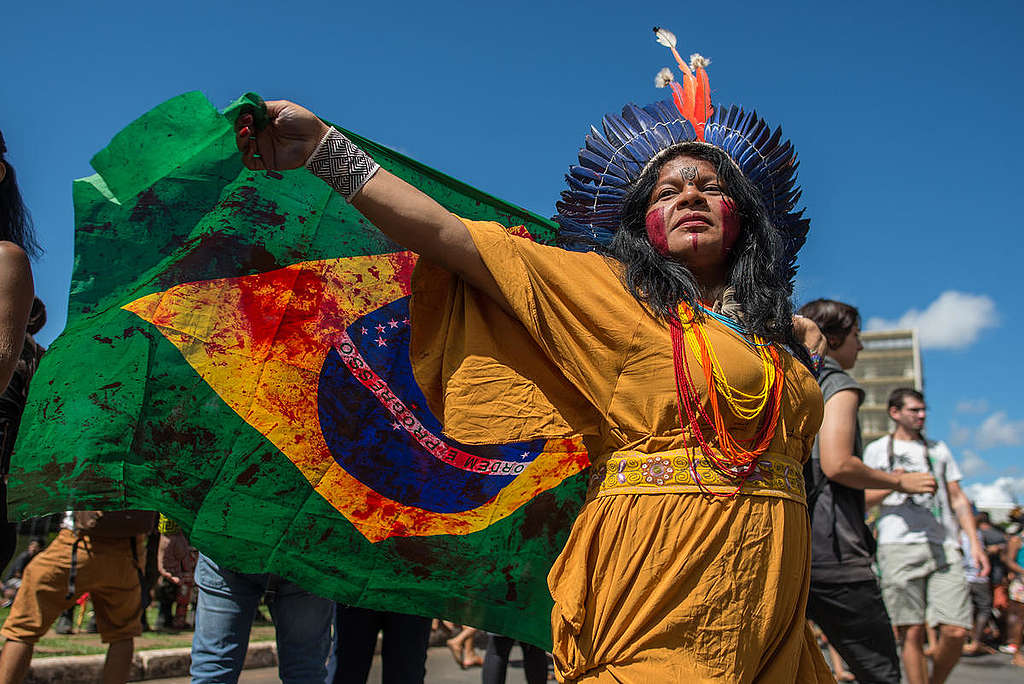
At the end of it all, Indigenous leader Sonia Guajajara of Articulação dos Povos Indígenas do Brasil could not have put it simpler. Indigenous Peoples have long fought to protect their homes from a kind of development that is forced upon them.“We ask for the obvious: they take care of our home – the trees, forests, and waters. There is our home and also the home of our ancestors. There is the home of the animals and our spirits. There lives the immensity of life that ensures that this Earth is inhabited.”
Everything is connected
Care, respect for each other and respect for nature will contribute to community-building and empower us to tackle the climate and biodiversity crisis and inequality. The popular phrase “actions speak louder than words” suggests an ethical way of participating in the world. If we enjoy the theory of “Everything is connected”, then should we not practice it? This could start with beginning to recognise that our problems are connected and by default so are our solutions.
Yewande Omotoso is a Storyteller and Abigail Aguilar is a Campaign Strategist at Greenpeace International.
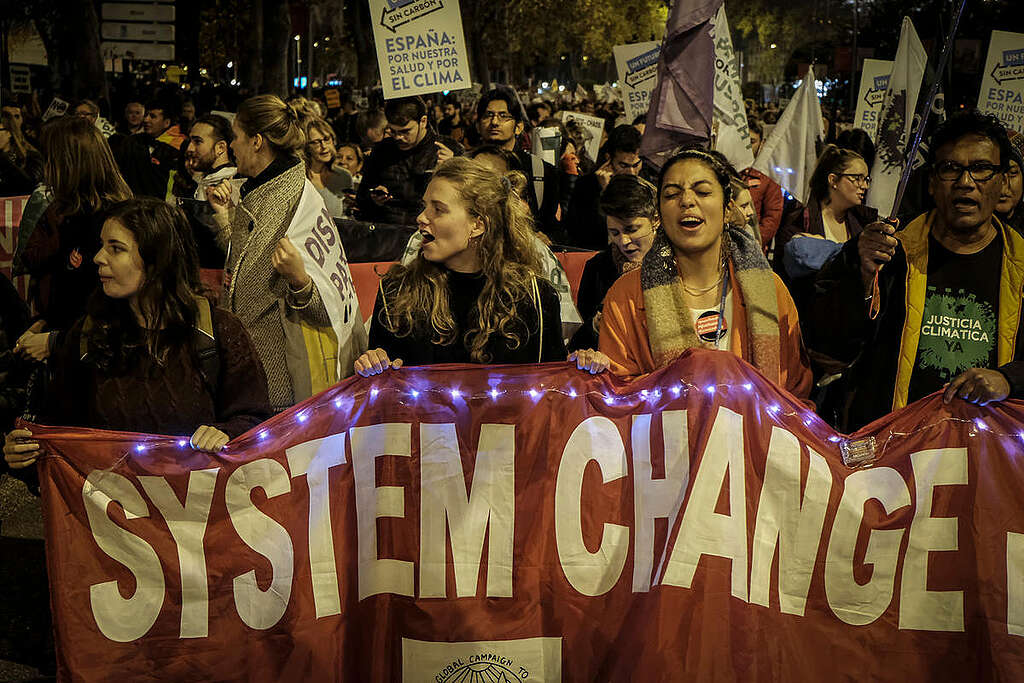
We’re asking governments to put wellbeing at the top of the agenda. Join our global movement and let’s demand wellbeing for all!
Join our global movement!* The commons refers to a broad set of resources, natural and cultural, that are shared and self-managed by a community and not owned privately.

